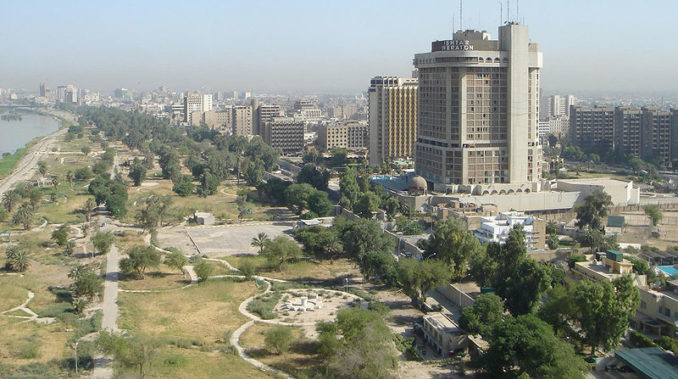
Internal conflicts are fueling widespread anger in Iraq, but they are not about religious disputes. The anger is fueled by the appearance of widespread corruption throughout all of the political parties, as with the current protests in Lebanon; and simultaneously with issues of broad unemployment and poverty despite guaranteed schooling, in a repeat of tensions which triggered the “Arab Spring”.
Friction between Iran and the United States is being blamed for many of the governmental problems, with both countries seen as promoting their regional interests at the expense of Iraqi citizens.
The anger is inspiring anti-government marches in cities throughout the country, and the response to those gatherings has been bullets. 18 are reported dead and 865 injured after government agents fired upon a crowd of protesters in the city to Kerbala on Monday. This followed 3 who were reportedly killed in protests earlier on Monday and more than 60 others confirmed killed since Friday. Some of the earlier deaths were attributed to actions such as shooting tear gas canisters directly at people within crowds.
The protesters are not always restricting themselves to marching. Human Rights Watch reports, for example:
(P)rotesters attempted to burn down Popular Mobilization Forces (Hashad or PMF) office buildings, leading forces inside to open fire and kill protesters. In Basra, a police vehicle drove into a crowd of protesters, injuring some.
The conflicts come even as an investigation has recently been opened into a prior wave of violence in early October, as 149 people were killed and more than 3000 injured during similar protests between October 1 and October 9. In some of those instances, police and other government forces reportedly fired rifles and sprayed scalding water on protesters not only during the demonstrations but also as the protesters were already dispersing.
Tensions such as those seen in the Middle East are breeding grounds for violence and terror recruitment. We, as a nation, had very disparate examples of our national involvement during the “Arab Spring”. We saw through the different results in places like Egypt, Syria and Libya that we are better served to align our interests with freedom-desiring people in a country than merely by pressuring them to allow us to pursue our goals. Instead, the widespread discontent with both US and Iran-aligned parties in Iraq was likely a factor in forcing President Trump to recant his decision to shift military units from Kurdish areas of Syria to Iraq during his abandonment of our allies, moving instead directly to the Syrian oil fields.

1 Trackback / Pingback
Comments are closed.